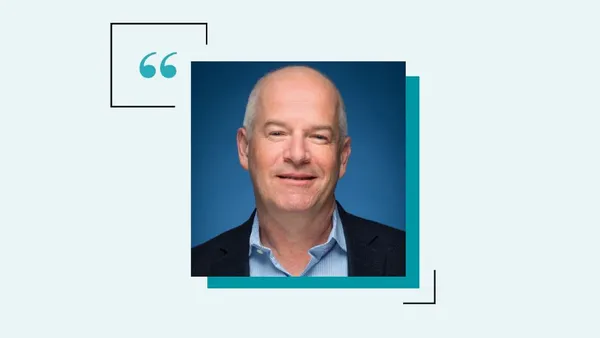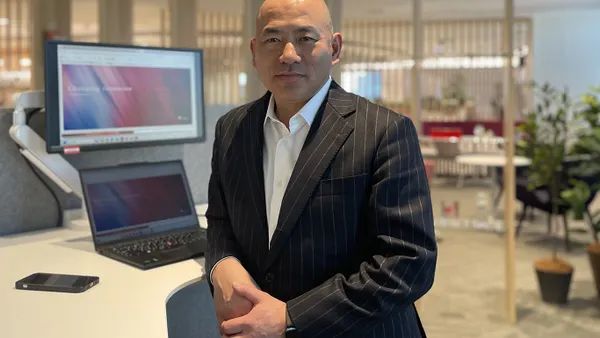Wendy Fielding found her purpose, more than 30 years ago, after graduating with a finance degree. Health care finance became her calling, advancing to the CFO level through planning and analysis functions.
Working closely with operational leaders at a variety of health care institutions to learn how their business units worked helped Fielding understand the key drivers of business activity and financial performance, how to assess risk, and how to ask tough questions and receive difficult answers.
At the same time, Fielding sought a variety of experiences and environments ranging from director of financial reporting and analysis at teaching hospital Boston Medical Center to serving as CFO at a small, rural community hospital. She left that institution after seven years to join Dartmouth Hitchcock Medical Center in 2009 as vice president of financial planning.
Named to her current position in 2021, Fielding leads a finance team of more than 155 people in a hospital system with almost 12,000 employees.
Wendy Fielding

CFO and senior vice president of finance, Dartmouth Hitchcock Medical Center and Clinics
- First CFO position: 2002
- Notable previous employers:
- Mount Desert Island Hospital
- Boston Medical Center
- Newton-Wellesley Hospital
This interview has been edited for brevity and clarity.
SANDRA BECKWITH: You have spent nearly all of your finance career in hospital systems. What appeals to you about the work in that environment?
WENDY FIELDING: While I started my career in product-focused high-tech, I soon realized I wanted to work in an industry that had a more meaningful impact on people's lives. Since then, I've stayed within health care because, in addition to the impact on people's lives, it is a very complicated environment with funding mechanisms that are challenging to understand and explain.
It’s forced me to be a teacher and to educate others in my organization about how finance works. I enjoy both a challenge and helping colleagues understand what’s happening and why.
You’ve been at Dartmouth Hitchcock for almost half that time. What keeps you there?
FIELDING: Our $3.2 billion system continues to grow, adding new member hospitals that are very similar to those from my career experience. I understand these different types of organizations and respect what each brings to the table.
Working with them and our talented clinicians and operational leaders to bring the best care possible to our community while remaining financially healthy keeps me interested, challenged, and engaged.
You pursued an MBA in health-care management early in your career. How has it supported your career?
FIELDING: Even as an undergraduate, I felt strongly that I’d need an MBA to have more career flexibility. When I was ready to return to school, I was fortunate to be in Boston, where I could take advantage of Boston University’s well-known health-care-focused MBA program that emphasizes how health care is a business.
We might be mission-driven, but we need to generate a margin in order to achieve that mission.
You were selected for a Carol Emmott Fellowship. How has that contributed to your career?
FIELDING: It’s an intense and purposeful 18-month program designed to help women leaders increase their influence, impact, and national visibility. It gave me an opportunity to discuss work issues and career development with a mentor who's incredibly knowledgeable, but also objective.
The fellowship requires a degree of positive self-examination, which really helped me appreciate what I bring to the leadership table. There is real power in learning that about yourself and acknowledging it.
"We might be mission-driven, but we need to generate a margin in order to achieve that mission."

Wendy Fielding
CFO
I’m also now connected to an active and supportive group of exceptional women leaders from all areas of the country.
How do you determine who you hire in finance?
FIELDING: I look for analytical talent and intellectual curiosity. I also find that in health care in particular, humility and good communication skills are important.
Because we work with our organizational leaders to support decision-making, we need to be able to talk with non-finance people about topics like business plans and calculating return on investment. It’s important that we do this respectfully and with patience because they may not have a business background.
Would you recommend the industry-focused path you followed to others in finance hoping to become CFOs?
FIELDING: I'm a little biased because of my experience, but if you feel like you have a calling or a connection to a particular field, go for it.
Understand, though, that you need to experience diverse aspects of that field. I moved around to get the exposure to different types of roles, organizations, and geography that I needed to lead effectively as a CFO.













